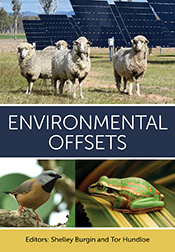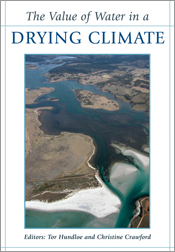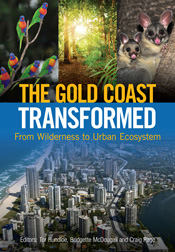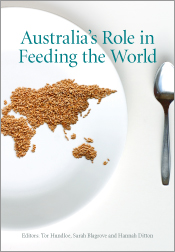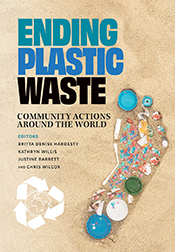Environmental Offsets
Edited by: Shelley Burgin, Tor Hundloe
Discusses the strengths and weaknesses of the different forms of environmental offsets.
We are currently facing significant challenges in environmental management that must be addressed to maintain the health of our planet and our population. While carbon offsetting in its various forms is widespread globally, few countries have fully legislated and put into operation other offset policies. This edited collection aims to fill the gap of knowledge on environmental offsets, from theory to practice. + Full description
Environmental Offsets addresses four major forms of environmental offsets – biodiversity offsets, carbon offsets, offsetting the depletion of non-renewable resources and offsetting the destruction of built heritage. The authors discuss their research and provide case studies from around Australia and across the developing world. Using examples such as the Sydney Olympics, the Bakossi Forest Reserve in Cameroon and green roof gardens, this book highlights the strengths and weaknesses of environmental offsetting and illustrates how jobs can be created in the offsetting process.
Environmental Offsets is both a historical source in our understanding of environmental offsetting and a guide to the way forward. It illustrates what works, what does not and what can be improved for the future.
- Short descriptionDetails
Paperback | March 2021 | $ 69.99ISBN: 9781486313181 | 140 pages | 245 x 170 mm
Publisher: CSIRO Publishing
Illustrations, Photographs
ePDF | March 2021
ISBN: 9781486313198
Publisher: CSIRO Publishing
Available from eRetailers
ePUB | March 2021
ISBN: 9781486313204
Publisher: CSIRO Publishing
Available from eRetailers
Features
- An easy-to-read examination of the theory and practice of environmental offsetting.
- Includes case studies and lessons learnt from Australia and across the developing world.
- Illustrates the approach to estimating the amount of carbon dioxide offset.
Contents
About the editorsList of contributors
Acknowledgements
Preamble
1: Introduction to environmental offsets
2: Crucial and contentious issues in addressing offsets
3: The nuts and bolts of biodiversity offsetting
4: Management of protected areas: the need for environmental offsets
CASE STUDIES
5: The 'Green Olympics' saves the green and golden bell frog
6: Recreational fishers seek offsets
7: 'Roof gardens': an emerging offset opportunity
8: Offsetting coal-based electricity
CASE STUDIES: OFFSETTING IN DEVELOPING COUNTRIES
9: Offsets in developing countries
10: Compensating for the loss of tribal lifestyle
11: The role of offsets in the conservation of cultural and built heritage
ALL FORMS OF OFFSETTING ROLLED INTO ONE
12: The Adani coal mine: attempting the impossible
THE MAJOR TASK FOR THE FUTURE
13: An urgent matter: offsetting coal mining jobs
References
Index
View the full table of contents (PDF, 86 KB)
Authors
Emeritus Professor Shelley Burgin was among the early graduates from Griffith University in the first environmental science program of its kind in Australia. She went on to earn a master degree with a focus on crocodile conservation at the University of Papua New Guinea and complete a PhD in evolutionary genetics. She is a Fellow of the Royal Zoological Society of New South Wales and in 2018 was inducted as a Member of the Order of Australia (AM) for her service to environmental science and education as well as to zoology and conservation. With over 200 publications, Shelley continues to undertake research and publish in semi-retirement.
Emeritus Professor Tor Hundloe was one of the pioneers of modern-day environmentalism. In 2003, he was the first Australian recognised by the award of an Order of Australia for his development and practice of economics in line with ecological reality and ethical imperatives. In 2010, he was awarded the Individual Award by the United Nations Association of Australia and is currently a researcher within the Global Change Institute at the University of Queensland. He has also edited The Value of Water in a Drying Climate (2012), The Gold Coast Transformed (2015), and Australia's Role in Feeding the World (2016).
Contributors:
Dr Johari Amar, Dr Lynne Armitage, Sheron Chand, Kayalvizhi Sundarraj Chandrasekar, Ella Dewilde, Keeley Hartzer, Dr Craig Langston, Dr Alan Midgley, and Dr Eric Fru Zama.

